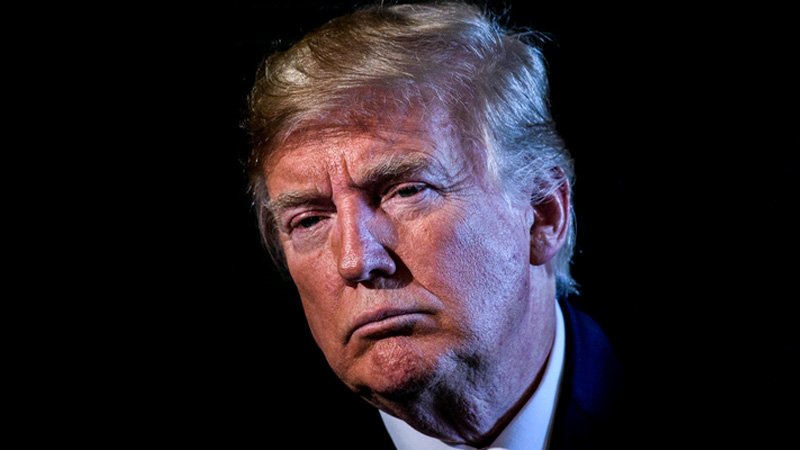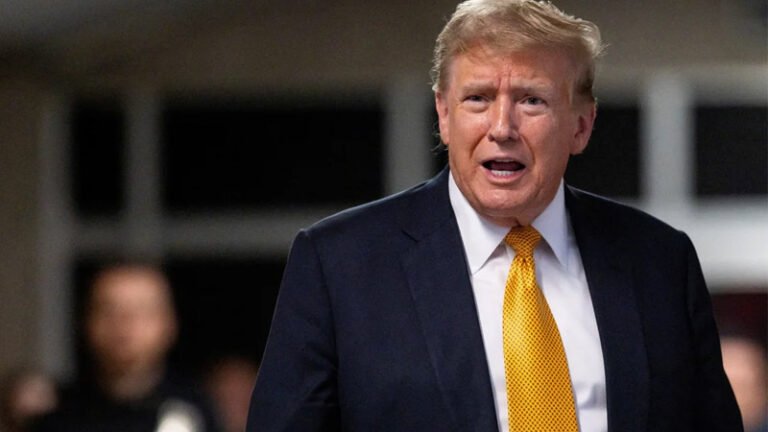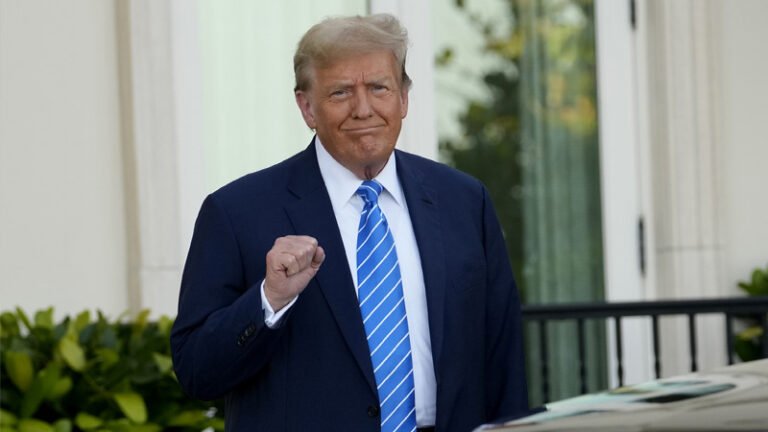
Photo Credit : Brendan Amialowski/Afp/ Getty images
According to a report by AP News on Monday, August 5, 2024, the United States Supreme Court has declined to intervene in former President Donald Trump’s ongoing legal battle related to hush money payments, setting the stage for his impending sentencing in New York.
In a brief unsigned order, the nation’s highest court rejected a lawsuit filed by Missouri Attorney General Andrew Bailey, who sought to delay Trump’s sentencing and lift a gag order imposed on the former president.
The decision marks a significant setback for Trump’s legal team and supporters, who had hoped for judicial intervention to postpone the proceedings until after the November presidential election.
Trump, who is currently the Republican nominee for the 2024 presidential race, was convicted in May on 34 felony counts of falsifying business records related to a $130,000 payment made to adult film actress Stormy Daniels.
Prosecutors argued that the payment, made shortly before the 2016 election, was intended to suppress allegations of a sexual encounter between Trump and Daniels, thereby influencing the outcome of the presidential race.
The former president has consistently denied any sexual relationship with Daniels and has vowed to appeal his conviction following the sentencing, which is now scheduled for September 18.
Missouri’s lawsuit, which was supported by several other Republican-led states, claimed that the New York case infringed upon the constitutional rights of voters to hear from their preferred presidential candidate.
Bailey argued that the gag order and potential sentence could hamper Trump’s ability to campaign effectively, potentially impacting the electoral process in Missouri and other states.
However, the Supreme Court’s decision to reject the lawsuit upholds the principle of allowing state courts to handle their own criminal matters without federal interference. report from Reuters,
The ruling also maintains the existing gag order, which restricts Trump from publicly commenting on prosecutors, court staff, and their families involved in the case.
Despite the setback, two conservative justices, Clarence Thomas and Samuel Alito, indicated they would have allowed Missouri to file its complaint, although they would not have granted other relief sought by the state.
This development comes as the United States braces for what promises to be a highly contentious and closely watched presidential election in November.
Trump’s legal challenges, including this case and others related to his attempts to overturn the 2020 election results, continue to be a significant factor in the political landscape.
The Supreme Court’s decision underscores the complex interplay between the judicial system and the electoral process, particularly when a major political figure faces criminal charges.
As the 2024 campaign season intensifies, Trump’s legal battles are likely to remain a focal point of public attention and political debate.
The ruling may disappoint Trump’s supporters who had hoped for judicial intervention to delay or halt the legal proceedings against him.
However, it reinforces the independence of state judicial systems and their ability to proceed with criminal cases involving high-profile defendants.
New York Attorney General Letitia James had argued against Missouri’s lawsuit, stating that it would permit an “unprecedented and perilous circumvention” of Trump’s ongoing state court proceedings.
James contended that Missouri’s allegations were speculative and lacked legal merit, asserting that any purported harms to Missouri voters were not directly connected to the actions of New York’s courts.
The Supreme Court’s decision aligns with its traditional reluctance to intervene in state criminal court matters, especially in cases that do not present a true interstate dispute.
This ruling may have implications for other ongoing legal challenges faced by Trump, including federal charges related to his efforts to overturn the 2020 election results.
As the legal proceedings continue, Trump’s campaign team will need to navigate the challenges of running for president while facing potential criminal sentencing.
The gag order, which remains in place, will continue to limit Trump’s ability to publicly discuss certain aspects of the case, potentially impacting his campaign strategy.
Political analysts will be closely watching how this development affects Trump’s standing in the polls and his campaign messaging in the coming months.
The case also raises questions about the broader implications for future elections and the potential for legal proceedings to influence the political process.
As the United States moves closer to the November election, the intersection of legal challenges and political campaigning is likely to remain a contentious issue.
The Supreme Court’s decision serves as a reminder of the separation of powers and the limits of federal intervention in state-level criminal proceedings.
It also highlights the unique challenges posed by a former president facing criminal charges while simultaneously running for re-election.
The ruling may prompt discussions about potential reforms to the legal system to address situations where criminal proceedings could impact national elections.
As the case proceeds, it will likely continue to generate significant media attention and public debate about the role of the justice system in political affairs.
The outcome of Trump’s sentencing, now set for September, could have far-reaching implications for both his campaign and the broader political landscape.
Voters will be tasked with weighing the legal issues surrounding Trump against other factors as they make their decisions in the upcoming election.
The case also raises questions about the long-term impact on the American political system and the precedents it may set for future elections.
As the United States braces for what is likely to be a highly charged election season, the interplay between legal proceedings and political campaigning will remain a crucial area of focus.
The Supreme Court’s decision, while resolving one aspect of the legal challenges facing Trump, leaves many questions unanswered as the nation moves towards a pivotal election.





